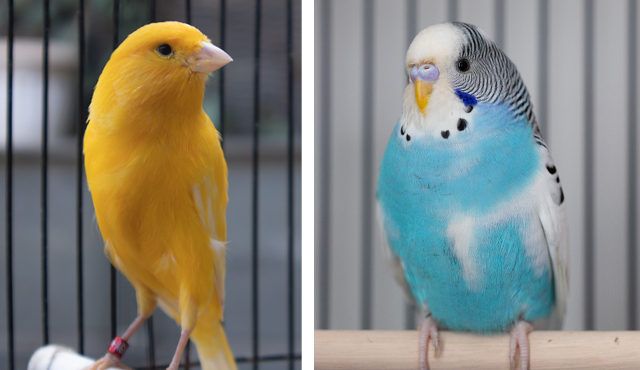When I was off from school and my mother had to go to John’s Grocery down the block in our South Bronx neighborhood, she often left me with Jenny, who lived two flights beneath us on the fourth floor and became my surrogate Italian grandmother. Childless old Jenny had an unflagging delight in children, and I became the solace of her identical days. She always begged to let me stay even after the shopping was done, so my mother would retreat upstairs, while I spent a few hours preening myself in the mirror of Jenny’s love. Besides teaching me how to add and subtract with kidney beans from a big glass jar, she taught me card games like Scopa and Briscola and plied me with 7Ups.
But my mother always referred to her as “poor Jenny” because she was married to Ciro. Jenny corroborated this view of her plight whenever we played bingo and number 22 came out. “I pazzi,” she would mutter to herself, that is, “the lunatics,” because she and Ciro lived in apartment 22.
Like Jenny, Ciro was born in Naples, but he came to the U.S. as a young man after escaping a seminary and deserting the Italian Navy during World War I. In contradistinction to his wife, who spoke Neapolitan to me, Ciro spoke fluent English. He was also a true craftsman in construction carpentry but kept getting fired. After a hard morning’s work, he would often have a distilled lunch in the nearest bar and call it a day — and God help Jenny if she wasn’t home. He refused to take a key to work (which he’d only lose), so, on the rare occasions when Jenny wasn’t there to let him in, Ciro crept up four flights on the front fire escape. While climbing, he bawled out laments about his negligent wife to the rest of the building before entering his domicile by the big kitchen window.
If I was present when Ciro came home drunk, I’d make a diplomatic exit after a confirmatory nod from Jenny. If he was just tipsy, or my mother wasn’t home, I’d stay, since he usually disappeared into the bedroom. If he didn’t fall asleep, though, he would reemerge in his threadbare red-and-black tartan bathrobe, revealing the huge but fading tricolor Italian flag tattooed on his chest. Settling into his chair at the kitchen table by the double window, he started chain-smoking Camels and working on the Ballantines or Pabst Blue Ribbons that Jenny had lugged upstairs that morning.
When sober, Ciro was Britishly polite and well-spoken. With his sparse gray mustache, bald liver-spotted head, and buckshot eyes magnified by black reading glasses slung low on his nose, he looked shabby genteel/professorial. This was especially in evidence on Sunday mornings when he read The Journal American or Police Gazette in his clean white shirt buttoned all the way up to his freshly shaved neck.
When he was drunk, it was a different story. Long before “Rocky,” Ciro flung a cooking turkey out the window during a Thanksgiving morning dispute. Although verbal altercations were the normal means of communication between Jenny and Ciro, physical conflicts were uncommon. Jenny was a strapping 180-pounder who had several inches on her husband, whereas Ciro was a 110-pound weakling who barely ate solid food.
Always fond of a joke, Ciro exploded with laughter when I tried to pick up the nickel and dime that, unbeknownst to me, he had soldered to the heads of two nails driven through his kitchen floor. And I recall how my mother once took me and my very young sister down to Jenny’s to trick-or-treat. Proud of her homemade Gypsy costume, my sister shrieked and ran for the stairwell when Ciro threw open the door in a pair of Groucho glasses, wagging his head while gleefully shouting “Aaaaaaaarrrrrrrggh-a-hahaaaaa!”
For years Ciro kept a succession of pairs of birds — always a yellow canary and a blue parakeet. The two birds of each cycle were housed singly in cages suspended from the ceiling on opposite sides of the kitchen. Ciro meticulously attended to their nutritional and hygienic needs, setting up little mirrors for them to peck at, gently warbling and whistling to them, and even serenading them. On certain red-letter days he allowed them to stretch their wings a bit by freeing them to soar up and down the cozy three-room flat. But much like Yahweh’s, the ways of Ciro were inscrutable, unfathomable. I remember an occasion when, on arriving at Number 22, I noticed both cages were empty.
“Jenny, where’s Petey and Mikey?”
Wringing her hands, Jenny raised her broad ashen face to the unheeding heavens and keened, “Ci-ro! Ciiiii-ro!” That strongly implied the birds were dead, and I pursued it no further, nor did Jenny seem eager to go into details.
Ciro didn’t come home while I was there, but the next day I was surprised to find Petey and Mikey back in their cages. While Jenny attended to some chores in the bedroom, I asked Ciro where the birds had spent the previous day.
“These are new ones,” he said with a chuckle that smelled like whiskey.
“Oh. … But what happened to the old ones?”
“You know, Petey, they was making too much noise — singin’ too loud all a time, night an’ day, when I had a headache,” he said, rubbing his corrugated brow, “even when I covered up their cages.”
“But what did you do with them?”
To illustrate, he reached for the salt and pepper shakers on the table. Trapping them in his left fist, he administered two hammering blows to the back of each shaker’s “head,” cocking the middle finger of his right hand against his thumb and then forcefully flicking it outward.
“So these are new birds?” I ventured.
“Yeah, got ‘em today.”
“What are their names?”
“This one’s Mikey,” he said, pointing to the yellow canary. “And that one there’s Petey,” he informed me, nodding toward the blue parakeet.
By far my fondest memories of Ciro are of his raucous summertime musical entertainments. To my glee as I entered the cacophonous apartment I would see him sprawled in his chair with his moccasined feet high up on the windowsill, throwing his head back and bemoaning the tribulations of his aching heart like the Howlin’ Wolf of Neapolitan love songs. Sending his plaintive cries hurtling out the kitchen’s double window, he strummed his guitar with brio, interrupting the rhythmic flow only with several loud toots on the black-clay “sweet potato” resting by his chair.
Coming from a nonmusical family, I found Ciro’s performances mesmerizing; Jenny and the neighbors, not so much.
 Fra Noi Embrace Your Inner Italian
Fra Noi Embrace Your Inner Italian







